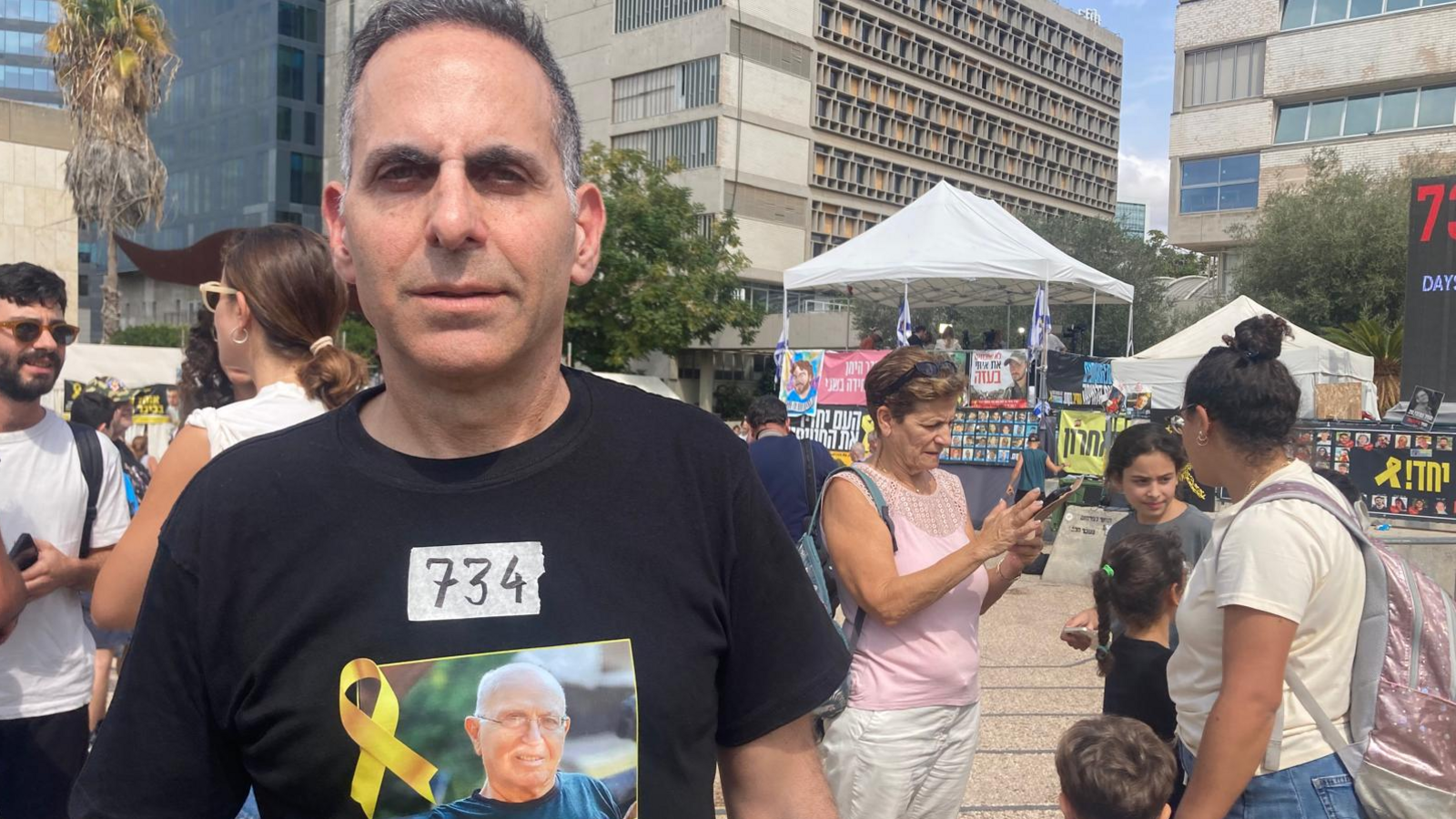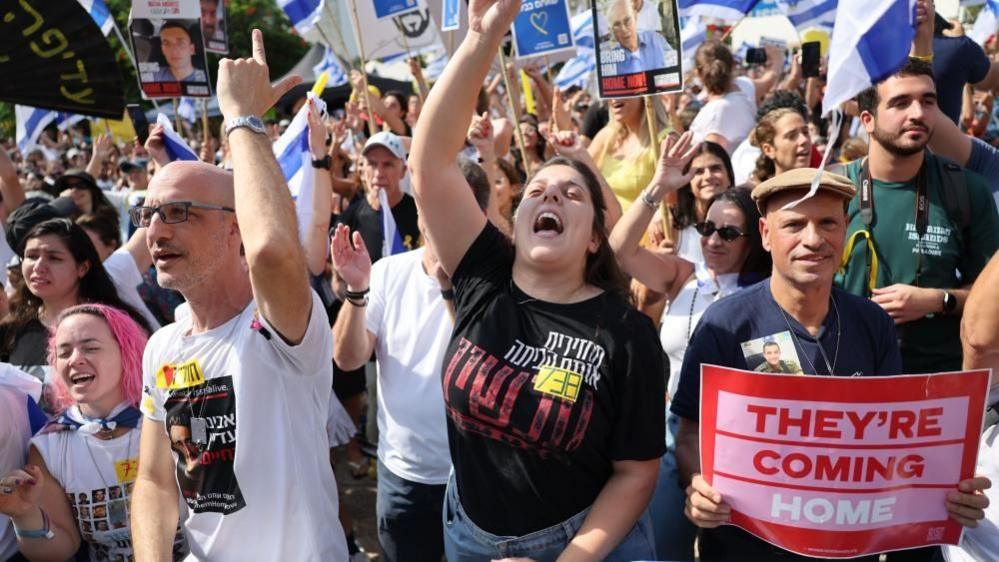Bowen: Trump's role in Gaza ceasefire was decisive, but not a roadmap to peace
'We want to raise our children': Life in Gaza after hostages and prisoners released
- Published
Donald Trump's quick trip to Israel and Egypt was the victory lap he wanted.
Anyone watching the speeches he made in Jerusalem and Sharm el-Sheikh could see a man luxuriating in his power - enjoying the applause in Israel's parliament, and in Egypt, basking in the fact that so many heads of state and government had flown in.
One veteran diplomat in the room said it looked as if Trump saw the role of the world leaders there as extras on his film set.
Trump's message at Sharm was, in effect, that he had created a historical turning point.
"All I've done all my life is deals. The greatest deals just sort of happen… That's what happened right here. And maybe this is going to be the greatest deal of them all," he said.
Observers might also have had the impression from the speeches that the job is done. It is not.
Without question, Trump can claim credit for the ceasefire and hostage exchange deal. Qatar, Turkey and Egypt used their leverage with Hamas to force it to accept.
That made it a joint effort, but Trump's role was decisive.
Without his push to demand Israeli Prime Minister Benjamin Netanyahu's agreement to terms that he had previously rejected, the deal would not have been signed.
It helps to recognise what the deal is – and what it isn't.
The agreement was for a ceasefire and an exchange of hostages for prisoners. It is not a peace agreement, or even the start of a peace process.
The next phase of the Trump 20-point plan requires an agreement filling in the gaps of the framework which declares that the Gaza Strip will be demilitarised, secured and governed by a committee including Palestinians.
It will report to a Board of Peace chaired by President Trump. Significant work needs to be done on the detail needed to make that happen.
The Gaza agreement is not a route map to peace in the Middle East, the ultimate and so far, unreachable destination.
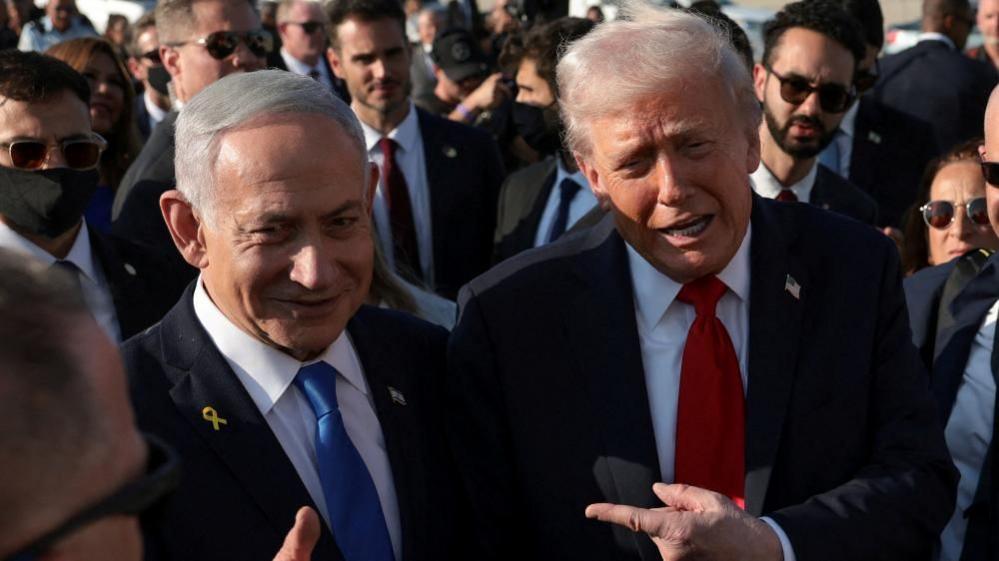
Netanyahu called Trump the 'greatest friend' Israel had ever had in the White House
Just as seriously, there is no evidence of the political will necessary to make a real peace deal. Most wars end with exhausted belligerents making some kind of agreement. The war in Gaza has become one of those, if as Trump has declared, it really is over.
The other way to end a war is with a total victory that lets the winners dictate the way ahead. The best example is the unconditional surrender of Nazi Germany in 1945.
Before 9 September, when Netanyahu ordered a missile strike on Qatar he seemed to still be intent on crushing Israel's enemy so comprehensively, that Israel would be able to dictate the future of Gaza.
The strike infuriated Trump.
Qatar is one of America's key allies in the region, and the site of the biggest US military base in the Middle East. It is also a place where his sons have been doing lucrative business. Trump dismissed Netanyahu's justification that the target, which was missed, was the Hamas leadership, not Qatar.
For Trump, America's interests come before Israel's. He is not like Joe Biden, who was prepared to accept harm to America's position in the region as the necessary price for supporting Israel.
CCTV captures moment of Israeli attack on Hamas leaders in Doha
Trump is back in Washington DC. Diplomats say the Americans realise that getting the detail sorted out is vital and will not happen quickly. The problem is that they might not have enough time.
Ceasefires always get violated in their early stages. The ones that survive tend to be based on a tight agreements, made by warring parties who have decided that their best option is to make them work.
The danger is that the Gaza ceasefire lacks those underpinnings. Only 24 hours after Israelis and Palestinians, for very different reasons, shared joy and relief that hostages, prisoners and detainees were home, cracks are appearing in the ceasefire.
Hamas has, so far, returned only seven of the bodies of the 28 hostages who were killed during their incarceration. Its explanation is that it is very hard to find their graves in the sea of rubble that Israel has created in Gaza.
Israel's patience is thin.
The fate of the bodies of the hostages will become a bigger and bigger issue in Israel if their remains are not repatriated.
As a first response, Israel has said that until Hamas fulfils its obligations it will cut the flow of aid into Gaza in half, and will not reopen Gaza's border crossing with Egypt - the Rafah crossing.
Bezalel Smotrich, Israel's extremist ultranationalist finance minister who opposes the Gaza deal, posted on social media that "only military pressure brings back hostages".
'You're my life, my hero': Hostages reunite with families after two years
- Published13 October
Palestinians celebrate return of detainees freed by Israel
- Published13 October
The Israel Defense Forces (IDF) still occupies 53% of the Gaza Strip. On Tuesday, its soldiers killed Palestinians who they said were approaching their forces. Palestinian Civil Defence in Gaza told the BBC that seven people were killed in two incidents.
It could be that the IDF is still observing the rules of engagement that it was using before the ceasefire. They order troops to watch two imaginary lines around their positions. If one is crossed, they fire warning shots. If Palestinians continue to approach their positions and cross a second imaginary line, IDF troops can shoot to kill.
A big problem with the system is that Palestinians do not know where the lines are. It is crowd control with live fire.
As for Hamas, it is reasserting its power.
Its men, armed and masked are back on the streets. It has attacked rival armed clans, some of which have been protected by the IDF. Videos have circulated of Hamas killing blindfolded and kneeling men who they have accused of collaborating with the Israelis.
The grisly videos of extra-judicial executions in the street send a message to any Palestinians who want to defy them that they should not dare - and to the outside world that Hamas has survived Israel's onslaught.
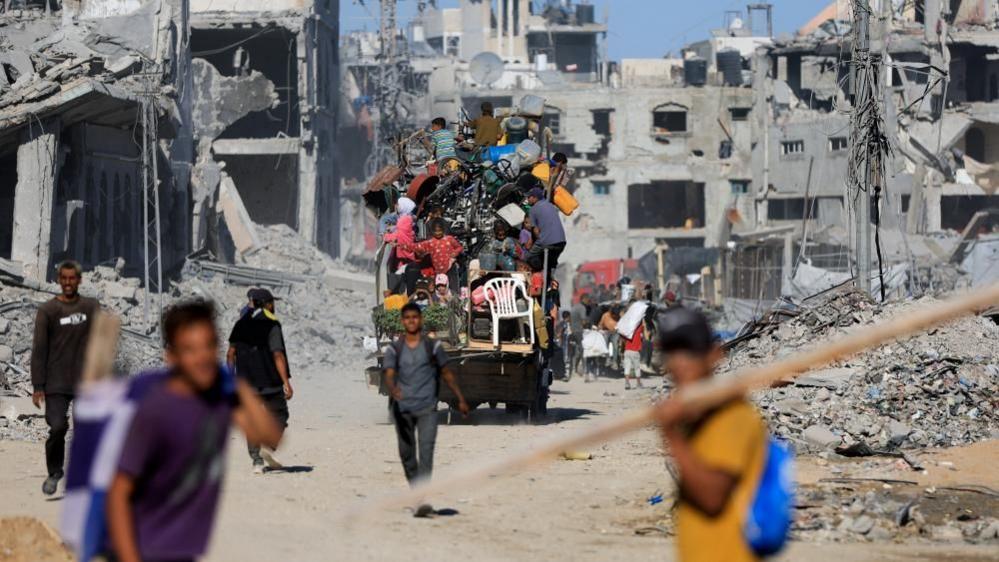
Gaza City has been reduced to grey rubble
Point 15 of the Trump plan for Gaza says the US "will work with Arab and international partners to develop a temporary International Stabilisation Force (ISF) to immediately deploy in Gaza". Raising and deploying that force will be impossible if the ceasefire is not solid. Potential contributors will not send in their troops to use force to disarm Hamas.
Hamas has hinted it might give up some heavy weapons but will not be disarmed. It has an ideology of Islamic resistance to Israel, and knows that without weapons its Palestinian enemies will come for revenge. Netanyahu has threatened that if no-one else will do it, Israel will finish the job. Hamas's weapons have to go, he has said, the "easy way or the hard way".
Trump has proclaimed that his Gaza deal, as it stands, will end generations of conflict between Arabs and Jews over the land between the river Jordan and the Mediterranean Sea. He insists too that it will lead to a broader peace across the Middle East.
If he really believes that the job of making peace is done, then he is deluding himself. Just trying needs sustained focus, hard diplomatic work and a decision by the two sides in the fight that the time has come to make painful sacrifices and compromises. To make peace, other dreams have to be jettisoned.
Past American presidents have also believed that they can make peace in the Middle East. Trump will discover that peace is not made just because a president, however powerful, decides that it is going to happen.
Related topics
- Published14 October
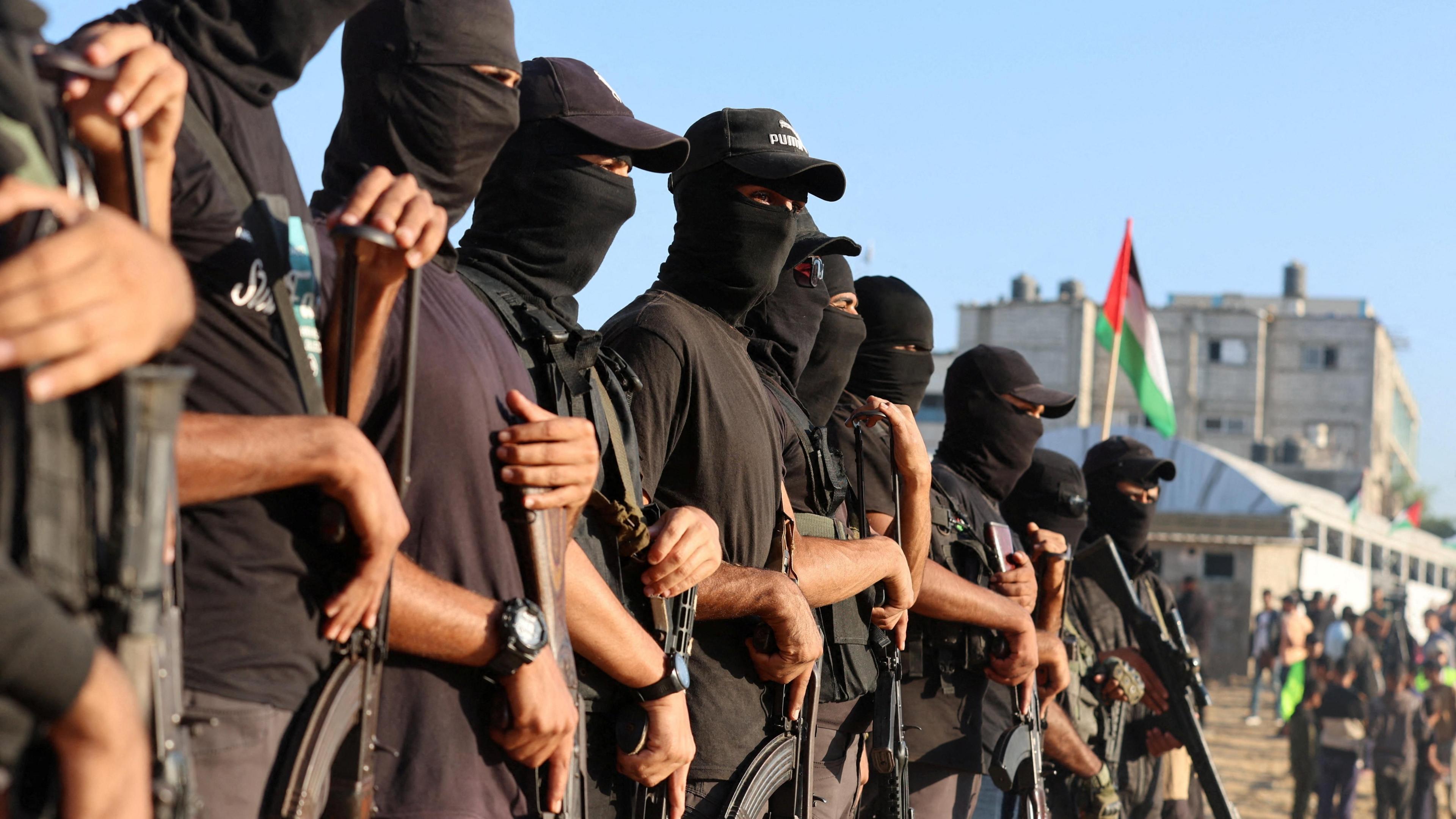
- Published14 October
